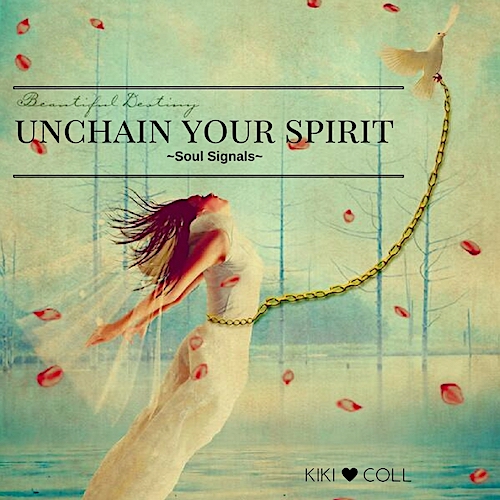
I was born into chaos.
As the youngest of six, my childhood was marked with the classic signs of a dysfunctional family unit.
From the outside looking in, we painted a cheerful picture of the All-American family; mom, dad, and a row of rosy cheeked little girls, one right after the other.
From the inside looking out, the view was foggy from under the murky veil that cloaked our hidden shame; the embarrassment of family upheaval that was a daily occurrence throughout my childhood. Physical violence, verbal abuse, and emotional belittling were routine behaviors that I recall from my earliest memories.
Sadness, despair, and confusion ruled my home life, only interrupted by anger and resentment. I grew up witnessing these intense scenes of unhappiness, accepting them as normal. Additionally, I was often physically sick as a child: suffering from stomach aches, headaches, breathing problems, weight issues, and general ill health. I was a product of my unhealthy environment.
Yet, I was very often laughing, cracking jokes, and seeking to make others smile. My closest friends wondered how and why I was still able to radiate such good vibes when I was living in dark circumstances. The adjective, “sweet,” was applied to my personality. “She’s a sweet girl,” they would say. They wondered how it was I loved so easily. Honestly, so did I.
It wasn’t until after I had moved out of my childhood home, at age 15, and moved some 3000 miles away that I really began to examine that question. Depression reared its ugly head, and the fight against it became harder with each passing year.
I experienced concentrated bouts of emotional suffering that I had been able to shrug off as a child, yet there was always some part of me that regenerated those positive feelings that kept me from slipping completely into an abyss. Somehow, I knew that if I wanted to move forward in my life, it was up to me to heal my personal pain, and I began my search for that child who loved so easily.
The world kept validating the ideology of my right to be angry, except that only created more negative emotions in me.
People sympathized with my plight, but they also openly encouraged me to placed blame on those who orchestrated the chaos. This thinking drew me into a cat-and-mouse type game with my family, in which I kept gravitating back to them in a desperate attempt to find healing.
I expected them to heal my suffering. I focused on it, determined my family could relieve me of my anger and sadness, because obviously, they were to blame for these emotions. I expected that miraculously they would absolve me of my own emotional suffering. I wanted them to heal me as easily as they had broken me. This never happened.
As I continued to examine my life, and the root of both my negative and positive feelings, I was reminded of a time when I was just seven years old. An older sibling, whose care I was often left in, would routinely lock me in my bedroom, leaving me alone for many hours of the day.
It was during those lonely times of solitude that I would find myself tucked up on my bed with closed eyes envisioning happier moments. I would hum while I created colorful scenes in my head, and after a bit, I would find myself feeling energized, relaxed, and even happy.
This practice lifted my spirit. At the time, I didn’t have any name for this practice, but eventually I realized that I had taught my young self to meditate. As a child, I wasn’t closed up spiritually. I was open and receptive to my spiritual and emotional signals. Without any preconceived ideas about my own emotions, I was able to listen to my soul-signals and heal my negative emotions by shifting focus off of my sibling’s actions and onto self-healing energy.
This was a practice I continued to utilize throughout my childhood. As I recall, I realized that my emotional pain was a natural defense mechanism, and something that I had control over.
I asserted that there was purpose in my suffering. To believe otherwise would be to deny our own pain, and would keep the lessons we need to heal, hidden.
Medical professionals such as those at the National Institute of Neurological Disorders and Stroke confirm that our brain triggers physical pain in our bodies to communicate that injury or illness is present and must be treated. Our brain will say, “Hey something isn’t right!” When we cut our finger or twist our ankle we experience pain and seek to relieve it to heal the hurt. We may apply ice to soothe a sprain or we may dab a cut with an antibiotic.
The same thing is true for emotional pain. Our soul communicates that injury or illness is present in the spirit by triggering emotional pain: Heartache, loneliness, depression, anger, resentment, and hate are all signals from our soul that emotional injury or illness is present—no different from the pain of a cut or a sprain.
Yet, unlike physical pain, we tend to not seek treatment. We ignore it, or we suffer through it, or we simply bury it deep in our soul. What remains are the symptoms of an untreated illness or injury that festers. Our soul continues to send signals that we should seek healing methods, and when we don’t our spirit becomes infected. In turn, our spirit is chained to the burden of pain and unable to move forward with positive emotions. This state of spiritual existence keeps us emotionally stagnant and in a state of suffering.
If we left a physical injury or illness untreated, it would worsen and could lead to permanent discomfort and even death. We would never think of doing this to our physical bodies, yet we do it routinely to our spirit. When we are faced with emotional pain, we somehow believe it is less important to give it direct attention or treatment. We often fail to recognize the negative emotional characteristics as communication from the soul that we need healing. Instead, we become embroiled in the negative communications and slowly our suffering increases, like any infection would.
Society teaches us that emotional suffering is a result of wrong-doing, either by one’s own actions or by the actions of another. Emotional pain is very closely linked to blame, unlike physical injury or illness, which is more often associated with accidental circumstances.
We might say, “Ouch, I accidentally cut my finger while chopping vegetables.”
In this statement the injury is the cut, a physical hurt, and we accept that it was inflicted unintentionally, not placing blame, and we take action to heal ourselves.
We would never think of saying, ”Ouch, I accidentally felt angry while disagreeing with your comments.”
In this statement the injury is anger, an emotional hurt. So instead, we would more likely say something like, “You are making me angry, stop saying that.“ We place blame on an outside source and ask that source to heal our injury.
This type of response to emotional pain is a misdirection of blame, and not conducive to healing. The anger is a not a result of someone’s actions, but a signal from our soul that those actions or words are injuring or causing illness to our spirit. If you place your hand on a hot dish while cooking your immediate response is to pull away and to correct your actions. When we feel emotional pain we rarely, if ever, stop to consider how to correct it. We place blame and expectation of change on outside sources (a person or situation).
“If they would just…If I could just…If this place was just… It would all be better, right?”
Once we recognize that these feelings are a signal from the soul rather than an outside source, we would then know that the answer to changing or controlling those negative feelings is an inward task. In order to alleviate the pain, we must communicate with the source of the pain—our own soul. Healing comes from within.
Suffering is purposeful. It relays the messages that tell us to protect ourselves and repair injury or heal illness to the psyche. Most of us react to soul signals by expressing the emotion rather than seeking a resolution to the emotion.
We should accept soul-signals as an invitation to a “soulful” examination, a time to look inward. In recognizing these signals, we then grant ourselves control over our own emotions. We are no longer dependent on others to change.
But how? How can looking inward at our own psyche change our anger toward another person? How can our loneliness, heartache, depression, resentment, or feelings of hate dissipate without those outside circumstances changing? How do we let go of anger and other toxic emotions?
By releasing blame and shifting focus.
Releasing blame does not mean releasing a person from the responsibility of wrongdoing. Blame should be a singular identifiable action within our minds and not a continual apprehensible action that perpetuates negative feelings within us. The latter is the most common application of blame and is the most common cause for prolonged feelings of anger, resentment, fear, and general unhappiness.
Once blame is identified, we must let it go! If for example, a family member or a co-worker said something negative, or created a negative situation, or whatever circumstance initiated your soul-signal into telling you “this hurts, this creates anger, this is negative,” needs to be identified and labeled as negative.
Next, make a plan to remove yourself from the negative parties/situations. Seek a practical solution to avoid repeating it, and then let it go. Replace the bad memory with a positive action. This helps to shift focus. Once you allow your mind to shift the focus away from the negative emotions and into a positive state, it will release the past and embrace the positive action. Slowly, you will learn to control releasing the negative and your mind will accept it as a habit.
It is our responsibility to repair our own negative feelings, not the offending party’s responsibility. That does not mean that we shouldn’t appropriately act to repair a bad situation, it simply means don’t depend on it to heal. Heal yourself first and the situation second.
Over time, this practice will heal your negative energy if you make a conscious choice to exercise the steps. By mastering the practice of releasing blame and shifting focus, I was able to heal my feelings of depression and move forward with my life, letting go of the negative energy that I carried with me into adulthood from my childhood.
Evaluate. Take action. Breathe. Let go.
When we are free of negative energy we are in tune with our soul signals, and our spirit is unchained and free to flourish.
~
Author: Kiki Coll
Image: Author’s Own
Editor: Deb Jarrett








Read 1 comment and reply